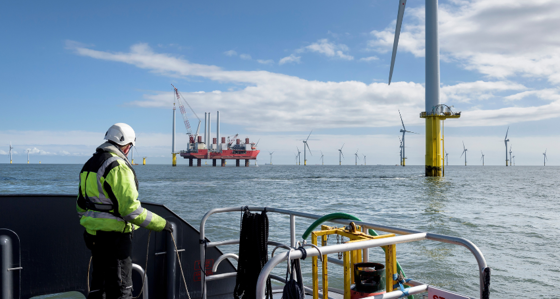
Commercial and debt outcomes throughout a systems migration
5 May 2023
Historically, migration programmes within energy retailers have focused too heavily on just delivering the technology infrastructure. More recently, organisations in transition have rightly put greater focus on customer outcomes and new agile ways of working.
Whilst these are important goals, energy retailers should not pursue these in isolation - core commercial outcomes and operational governance are also critical to successful migrations and embedding new operating models and ways of working.
The migration to new Software as a Service (SaaS) platforms and adaptation of business operating models has enabled greater agility and flexibility - resulting in significant benefits such as reduced IT costs, increasing speed in launching new products/services, and reduced operational cost to serve. However, energy retailers must ensure that these gains are not achieved at the expense of customer, commercial and regulatory outcomes.
The complexity of customer relationship management in the energy industry along with recent market volatility has exposed challenges in these new SaaS platforms and operating models. Some of these ‘new breed’ technology platforms were originally designed primarily for simple, online, direct debit customers with little consideration given to more complex customer needs.
However, with customer debt levels rising, billing inaccuracies are being uncovered, and service levels are declining as a result of increased customer demand. Under historical market conditions these deficiencies may not have been exposed but are very clear during the Cost of Living Crisis. Servicing these complex customers creates challenges which requires a high level of service and system maturity to be maintained throughout the migration.
Maximising value through migration
To succeed in their migration, retailers must create end-to-end delivery plans which cover both the “standard” customers and the final complex ‘tail’ of the migration - which may include complex metering or customers with ‘in-flight’ processes such as late-stage debt collection. For a successful migration, retailers should balance the need to exit legacy systems as fast of possible while avoiding losing commercial value.
Throughout migration, energy retailers need to be continually refreshing their view on the value of their customer accounts and which journeys they are in, to avoid being caught out midway through the transition. Companies need to be considering the needs of internal, external stakeholders and customers so that the future operating model is set up for success, both operationally and commercially.

Energy retailers need to decide what criteria they will set that will allow their customers to migrate to their new platform whilst avoiding re-creating legacy problems. Simultaneously, retailers need to decide when certain legacy processes will end, for example when to retire debt journeys on their old systems to avoid duplication on the new platform.
These challenges represent both short term migration and long-term capability questions. Failure to consider both the long and short term can result in either a new organisation not being set up for success or a failed migration.
Ofgem, who are expanding their enforcement team, are well versed at identifying retailers who are not meeting the required service levels. Historically, Ofgem has imposed a £26m fine for a failed migration and there are three open actions against retailers who are not delivering on operational and customer outcomes, demonstrating that these are key considerations for migrating retailers.
Building and embedding commercial resilience in the new operation
To avoid these key challenges in a system migration, energy retailers need to keep their customer, regulatory and commercial obligations in mind. Retailers' customer bases are too large and too vulnerable to fall into the trap of a “start-up” culture mindset. Moving fast and breaking things will result in retailers lacking the capability to deal with their license obligations.
Having the right capabilities, such as a segmented set of debt journeys and regulatory reporting, in place at day one is essential to prevent problems from compounding rapidly. Failure to tackle these issues will result in retailers being stuck in constant firefighting mode as they migrate, jeopardising the expected financial and customer benefits, and undermining the company’s targeted operational structures.
Baringa has supported several energy retailers through this transition and are well equipped to advise on the potential pitfalls and challenges that retailers will face. For help with this or other related topics on migration and transition please contact Toby Thurgood and Sarah Smith.
Related Insights

Trump trade tariffs: Impact on the UK EV uptake
The global automative industry is at a critical juncture, shaped by intersecting forces of electrification, geopolitical trade tensions, and national decarbonisation policy.
Read more
Driving economic growth by securing a cleaner and resilient future for the North Sea
Our report, published in conjunction with Offshore Energies UK (OEUK), outlines how the North Sea can continue to play a pivotal role in the energy system as the world shifts to net zero, while positioning the UK as a resilient, innovative and competitive player in the global energy landscape.
Read more
From early adopters to early majority: Driving the next phase of EV growth
As EVs are moving beyond the early adopter phase, what are the principles needed for mass market adoption and progressing towards net zero targets?
Read more
Crossing the industry divide to drive decarbonisation across Asia-Pacific
Resources organisations are identifying opportunities in the unfamiliar overlap between energy, mining and metals.
Read moreIs digital and AI delivering what your business needs?
Digital and AI can solve your toughest challenges and elevate your business performance. But success isn’t always straightforward. Where can you unlock opportunity? And what does it take to set the foundation for lasting success?